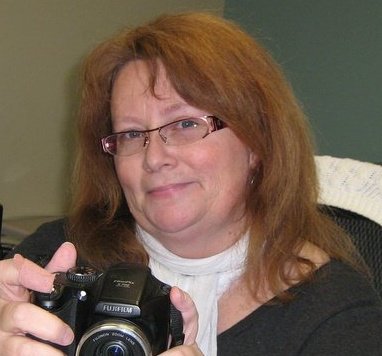I decided to write a blog post today (despite being home with a migraine) about why I think it’s important to vote
and why I am voting the way I am. I generally
veer away from political blog posting because I think most people are sick of
politics at the end of the day, but this election is different. We are at a
crossroads as a nation and as a planet. This could be the election that
determines how we face the future and all of its incredibly complex possibilities.
First, a little bit about why you should vote. Statistically, your vote counts more than you
think it does. I live in a state that has been labeled “red,” and yet I could
give you dozens of examples of how this is not entirely true. If you looked at
just the Kansas City and St.
Louis regions’ voting records, for example, you’d be
scratching your head. Red state? Really?
It’s out-state Missouri
that tips the state into the Republican basket, and even those votes are up for
grabs on lots of occasions. This is a state that has only had one Republican
governor in the past 20 years. The relevance
of this is that every vote in this state is statistically important. While it might look bad for Barack Obama in Missouri ,
it is entirely possible that Claire McCaskill could keep her senate seat, which
will have a not-insubstantial impact on the make-up of the United States Senate
and the federal legislative process as a whole. So if you think your vote isn’t important, please
think again.
The second reason to vote is this: Because you can. I remember somebody saying in the 1980s (maybe
it was Gil Scott Heron, a great voice we lost this past year) that people in
this country don’t exercise a right that people in other countries would
willingly die for. We take our freedom for granted. Sometimes people don’t vote because they think
it doesn’t matter (see previous paragraph), and sometimes because they feel
disillusioned. This is my take: When I exit the voting booth, it is the
greatest feeling in the world. I leave with a smile on my face and an upbeat
mood that stays with me all day. I leave feeling like I’ve done my part as a
citizen of the world. There is literally nothing else that leaves me feeling
that way. Giving blood, donating to a
good charity, raising a good kid – these all signify responsible citizenship, but for me, nothing
compares to voting. Nothing.
As for my personal candidate selection process, this is how
I make my decision: I look at the
integrity of the individual and at the choices he or she has made in his or her
life as well as their stand on issues.
Issues are important, don’t get me wrong, but even though I am
pro-choice, I would vote for a pro-life candidate if he or she got 60 to 70
percent of everything else right. I
think single-issue voting is dangerous for such a complex society as the one we
have in America .
I also look at the candidate’s vision. There are no easy decisions any more (if
there ever were), and this year’s presidential election exemplifies that. Europeans laugh at us because they can’t see
a single damned difference between our two major party candidates for
president. And to be sure, at first glance, the differences seem insubstantial. This year, both candidates are men
(again). Both have supported some form
of universal healthcare. Both say they want to reduce federal spending, raise
taxes on the wealthy, and help the middle class. Both display compassion for
their fellow Americans. Both are
wealthy.
Really, and I say this as a die-hard liberal, but truly I
don’t see a lot of difference between them.
One is pro-choice and the other is pro-life, but as I mentioned above,
that is not enough for me. What I am looking for is a vision. I’m looking for a vision of the future that
is hopeful and optimistic. I am a
hopeless optimist. When I look at the
east coast today and how they are coping, I see resilience. I see Americans at their best, against all odds, and it makes me
smile. THAT is what I want in my president. I want someone who doesn’t let the
negative voices weigh him down. I want
someone who will fight for me. I want someone who sees the glass half full and
is ready to top it off.
I know my Republican friends think that government is too
big (I don’t disagree) and they fear that Barack Obama will only make it
bigger, but I have to tell you: He is my
candidate. I respect Mitt Romney for his values, but I do not believe he has
the strength of character to make this world a better place – to fight for me
or to fight for my children and their future.
I do think Mr. Obama does. I am
willing to give him another term and another chance to implement his vision.
So…I hope to see you all at the polls tomorrow and on
Twitter and Facebook tomorrow night as we all partake of that every-four-year
American phenomenon called Election Night.
Here’s hoping for a pre-midnight bedtime for us all.

